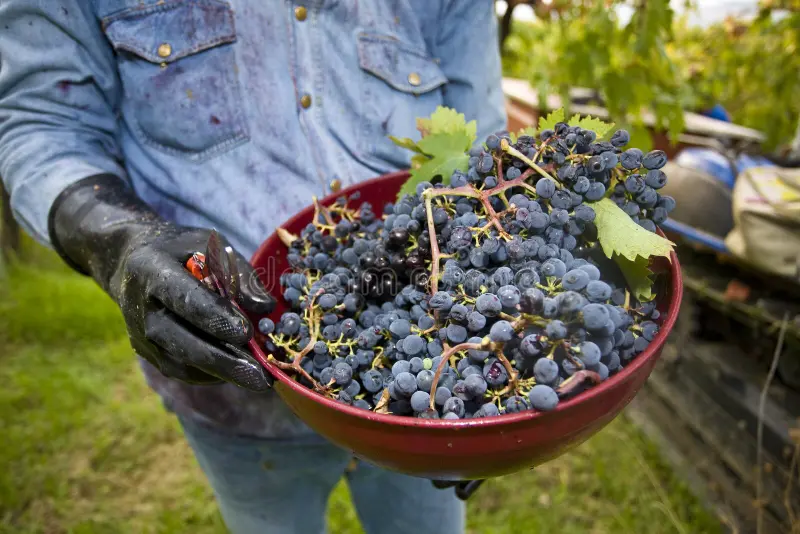Last week, a colleague asked if I was writing anything. I said a quick “No” before adding, “well, I’m working on a homily.”
“That’s writing,” she replied.
I delivered my homily at Spirit of Peace this morning. Despite having read it aloud numerous times in the past few days, I choked up when I shared the segments about my dad and the New York Times article. I hadn’t expected to falter through those words.
During the sign of peace and again during coffee hour, I received several compliments about my homily. In one conversation, we chatted about being part of the “universal church,” referencing the fact that the Scriptures we shared during liturgy today were shared by others around the globe.
When I opened my email hours later, I discovered a message from a person of a certain age who had joined our liturgical celebration via Zoom:
Karen, Your Homily this morning provided the best insights into this Gospel that I have ever heard. Thanks!
His message, and the conversation about our universal church, inspired me to share my homily in this post.

The first reading from Philippians [Philippians 1:20c-24, 27a] says, “For to me life is Christ, and death is gain. If I go on living in the flesh, that means fruitful labor for me. And I do not know which I shall choose.”
We also hear about labor in Matthew’s Gospel [Matthew: 20:1-16a], as Jesus illustrates God’s divine compassion and generosity. Numerous times after the first laborers begin to work, the landowner tells others, “You too go into my vineyard, and I will give you what is just.”
This parable is one I’ve struggled with in the past. Perhaps some of you have as well. Thankfully, a variety of resources helped shape this homily.
At Home with the Word 2023 explains, “The daily wage for laborers was enough for a small extended family of several adults and children to purchase bread and vegetables for the day’s meals with a bit left over for taxes and other expenses. Observant Jews had to be especially careful to keep enough for Sabbath days when they refrained from labor. The vineyard owner was thus making sure all his laborers could eat regardless of the work they put in. His concern was for the effects of the wage, not its value as a symbol of effort.”
Theologian Jessie Bazan had this to say, in part, on Catholic Women Preach.
“The first group of laborers in today’s parable get stuck in binary thinking at payment time:
Either you work a full day and get paid the usual wage, or you work part of the day and get paid part of the usual wage.
This thinking makes sense. It seems fair.
But then they see the later hires get paid the full wage, and the first group makes an assumption:
If those who work part of the day get the full wage, then those of us who work the full day will get the full wage plus a bonus.
Again, this thinking makes sense. It seems fair.
But the landowner rebukes this reasoning—and through his actions, Jesus shows us once again:
God is far too creative for binaries.
God is far too mysterious for assumptions.
Our God is a God of infinite possibilities, whose ways are high above the human ways to which we’ve grown accustomed. Our God cannot be tamed within the made-up constructs of in or out, worthy or unworthy, last or first. Our God is near to all who call upon the divine name in truth, no matter if we got to work at the crack of dawn or right before quitting time.”
Bazan’s words, “This thinking makes sense. It seems fair,” encapsulated my interpretation of today’s Gospel throughout the years.
My parents taught me about the importance of work, unions, and workers’ rights during my childhood in Butte. My paternal grandfather, Joseph Antonietti, immigrated from Italy. He died in 1937 when my father was only nine years old. In 2015, I helped my dad with a brief family history. Together, we wrote:
“Joseph was a walking delegate for the Cooks’ and Waiters’ Union, No. 22. Dan remembers asking, as a young boy, why his dad had to make weekly treks to collect union dues. His father’s reply, ‘If everybody was honest, we wouldn’t need unions,’ inspired Dan to become a lifelong union member. Now eighty-seven, Dan recently celebrated sixty-five years of active union membership.”
My parents also taught me about compassion, generosity, and love.
I was reminded of Matthew’s Gospel as I recalled a conversation I had with my son Eric several years ago. We were talking about ROOTS—the young adult Seattle shelter I’ve mentioned before that serves 18-25-year-olds who are experiencing housing instability.
Those seeking overnight shelter can call ROOTS between 8:00 and 8:30 PM or sign up at the door during the same thirty-minute window and ask to be put on the list. If more than forty-five people sign up, a random drawing at 8:30 PM determines who can stay, or who is offered a plate of food, a blanket, and a bus ticket—the latter which could be used to try to access another shelter.
I told Eric a lottery system didn’t seem fair, and asked why it wasn’t “First come, first serve.” He said some guests might have phones or bus money that enable them to access the list more easily. Others may have neither and might have to walk long distances to get to ROOTS. Thus, not applying a first-come-first-served approach was more equitable. And if more than forty-five people were looking for shelter, first-time shelter guests and those with medical needs who were referred by healthcare professionals were automatically welcomed in, not included in the lottery.
I was reminded of today’s Gospel again last week by a heartbreaking article in The New York Times, titled, “Suing. Heckling. Cursing. N.Y.C. Protests Against Migrants Escalate.” The tagline read, “After migrants were sheltered at a defunct school, neighbors on Staten Island turned on a loudspeaker and put up signs to drive them away.”
The article talked, in part, about a 52-year-old father and his 24-year-old daughter, who had journeyed from Ecuador and had been at the shelter for twelve days. They were vetted by the U.S. Border Patrol and had an immigration court date scheduled in the future. The authors wrote, “The two had spent the day in Queens—a three-hour round trip—canvassing every Spanish-speaking restaurant and store for open positions. But no one was hiring. Their plan was to wake up early tomorrow to try again.”
So, returning to today’s parable…the laborers who showed up early might have had privileges the latecomers did not: beds, breakfast, and proximity or the means to get to the marketplace at daybreak. Conversely, those who arrived later might have battled hunger and thirst as they walked hours to reach their destination. Or some, like the father and daughter in New York, might have been looking for work the entire day.
As always, I received inspiration from this community too. In Tim’s latest homily, he encouraged us to open our hearts and look upon others with compassion. He introduced me to Marcus Borg, whom The New York Times described as “a leading figure in his generation of Jesus scholars.” Borg’s words, “God’s primary quality is compassion; therefore, a life centered in God will be compassionate,” are reflected in today’s Gospel.
Earlier this month, John proclaimed: “Comfort to you who courageously advocate for fairer distribution of resources and challenge the belief that wealth is a sign of favor from God.”
And last Sunday when Alan unfolded the readings, he urged us to treat each other mercifully.
When I dove into today’s readings, I was in the midst of listening to Robin Wall Kimmerer narrate her nonfiction book, Braiding Sweetgrass. She wrote, “Generosity is simultaneously a moral and a material imperative, especially among people who live close to the land and know its waves of plenty and scarcity. Where the well-being of one is linked to the well-being of all. Wealth among traditional people is measured by having enough to give away.”
Today’s reading from the Philippians directs us to conduct ourselves “in a way worthy of the gospel of Christ.” May we continually be inspired to model our Creator God’s compassion, generosity, and love. Amen.
I am grateful to all whose words enriched my own.

Beautiful thoughts, Karen. I love your insight into the Gospel words.
Thanks, Linda. Sorry I didn’t see this until now.